1914. Cyclically Rotating a Grid
Description
You are given an m x n integer matrix grid, where m and n are both even integers, and an integer k.
The matrix is composed of several layers, which is shown in the below image, where each color is its own layer:
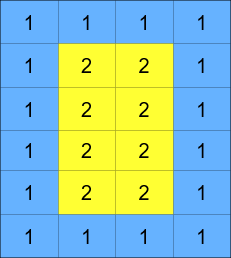
A cyclic rotation of the matrix is done by cyclically rotating each layer in the matrix. To cyclically rotate a layer once, each element in the layer will take the place of the adjacent element in the counter-clockwise direction. An example rotation is shown below:
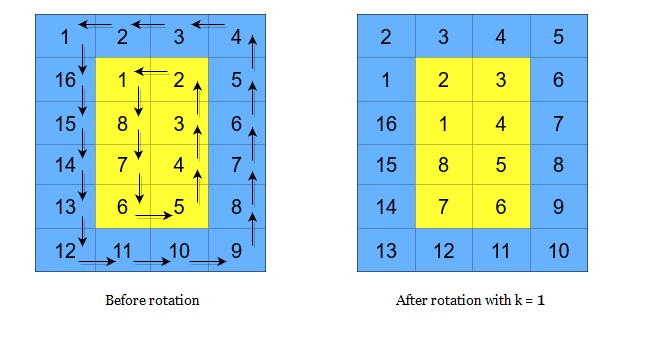
Return the matrix after applying k cyclic rotations to it.
Example 1:
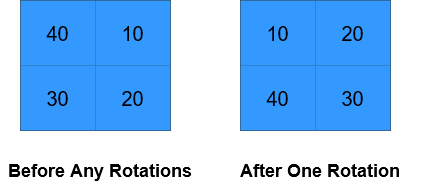
Input: grid = [[40,10],[30,20]], k = 1 Output: [[10,20],[40,30]] Explanation: The figures above represent the grid at every state.
Example 2:
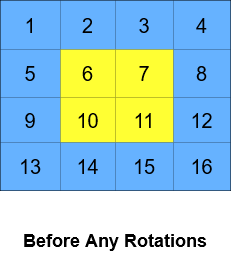
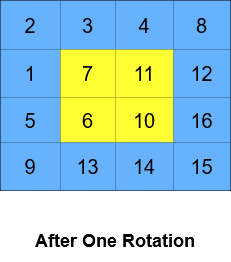
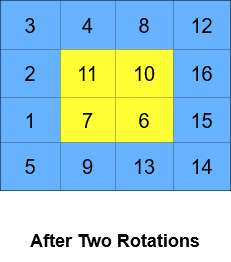
Input: grid = [[1,2,3,4],[5,6,7,8],[9,10,11,12],[13,14,15,16]], k = 2 Output: [[3,4,8,12],[2,11,10,16],[1,7,6,15],[5,9,13,14]] Explanation: The figures above represent the grid at every state.
Constraints:
m == grid.lengthn == grid[i].length2 <= m, n <= 50- Both
mandnare even integers. 1 <= grid[i][j] <=50001 <= k <= 109
Solutions
Solution: Simulation
- Time complexity: O(mnk)
- Space complexity: O(mn)
JavaScript
js
/**
* @param {number[][]} grid
* @param {number} k
* @return {number[][]}
*/
const rotateGrid = function (grid, k) {
const m = grid.length;
const n = grid[0].length;
const maxLayer = Math.min(m, n) / 2;
for (let layer = 0; layer < maxLayer; layer++) {
const rows = m - layer * 2;
const cols = n - layer * 2;
const cells = rows * 2 + cols * 2 - 4;
const steps = k % cells;
for (let step = 1; step <= steps; step++) {
const start = grid[layer][layer];
for (let col = 1; col < cols; col++) {
grid[layer][layer + col - 1] = grid[layer][layer + col];
}
for (let row = 1; row < rows; row++) {
grid[layer + row - 1][layer + cols - 1] = grid[layer + row][layer + cols - 1];
}
for (let col = cols - 1; col > 0; col--) {
grid[layer + rows - 1][layer + col] = grid[layer + rows - 1][layer + col - 1];
}
for (let row = rows - 1; row > 0; row--) {
grid[layer + row][layer] = grid[layer + row - 1][layer];
}
grid[layer + 1][layer] = start;
}
}
return grid;
};